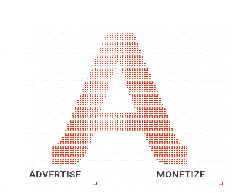Day 1: Overview of International Financial Reporting Standards (IFRS)
Welcome to Day 1 of our comprehensive course on International Financial Reporting Standards (IFRS). In this post, we will provide an overview of IFRS, its history and evolution, benefits of adoption, and differences between IFRS and local Generally Accepted Accounting Principles (GAAP).
What is IFRS?
IFRS is a set of accounting standards developed by the International Accounting Standards Board (IASB) that provides a framework for the preparation of financial statements. IFRS is used in over 140 countries around the world, including the European Union, Australia, Canada, and many others. The main objective of IFRS is to provide a common language for financial reporting, making it easier for investors and other stakeholders to compare and understand the financial performance of companies across different countries and industries.
IFRS is based on a set of principles, rather than rules, which allows for more flexibility and judgment in the application of the standards. This approach is designed to promote transparency, accountability, and consistency in financial reporting, and to provide users of financial statements with a clear and comprehensive picture of a company’s financial position and performance.
History and Evolution of IFRS
The history of IFRS dates back to the 1970s, when the International Accounting Standards Committee (IASC) was established to develop a set of global accounting standards. In 2001, the IASC was replaced by the International Accounting Standards Board (IASB), which is responsible for developing and issuing IFRS.
Over the years, IFRS has undergone significant changes and updates, with new standards and amendments being issued regularly. Some of the key milestones in the evolution of IFRS include:
- 2005: The European Union adopts IFRS for all listed companies
- 2007: The Securities and Exchange Commission (SEC) in the United States announces plans to allow foreign private issuers to use IFRS in their financial reporting
- 2011: The IASB and the Financial Accounting Standards Board (FASB) in the United States launch a joint project to converge IFRS and US GAAP
- 2014: The IASB issues a new standard on revenue recognition, which is designed to improve the consistency and comparability of revenue reporting across different industries and countries
Benefits of IFRS Adoption
The adoption of IFRS has several benefits, including:
- Improved comparability: IFRS provides a common language for financial reporting, making it easier for investors and other stakeholders to compare and understand the financial performance of companies across different countries and industries.
- Increased transparency: IFRS requires companies to provide more detailed and comprehensive information about their financial position and performance, which can help to improve transparency and accountability.
- Reduced costs: The use of a single set of global accounting standards can help to reduce the costs of financial reporting and compliance, particularly for companies that operate in multiple countries.
- Improved investor confidence: The adoption of IFRS can help to improve investor confidence in a company’s financial reporting, which can lead to increased investment and economic growth.
Differences between IFRS and Local GAAP
IFRS and local GAAP have several differences, including:
- Accounting principles: IFRS is based on a set of principles, rather than rules, which allows for more flexibility and judgment in the application of the standards. Local GAAP, on the other hand, is often based on a set of rules and regulations that are specific to a particular country or industry.
- Financial statement presentation: IFRS requires companies to present their financial statements in a specific format, which includes a balance sheet, income statement, and cash flow statement. Local GAAP may have different requirements for financial statement presentation.
- Revenue recognition: IFRS has a specific standard on revenue recognition, which requires companies to recognize revenue when it is earned, regardless of when the cash is received. Local GAAP may have different rules for revenue recognition.
- Lease accounting: IFRS has a specific standard on lease accounting, which requires companies to recognize leases as assets and liabilities on their balance sheet. Local GAAP may have different rules for lease accounting.
Conclusion
In conclusion, IFRS is a set of global accounting standards that provides a framework for the preparation of financial statements. The adoption of IFRS has several benefits, including improved comparability, increased transparency, reduced costs, and improved investor confidence. However, there are also differences between IFRS and local GAAP, which companies must be aware of when preparing their financial statements.
Bookkeeping Services @ One Web One Hub 
MTF Co. provides bookkeeping services to small businesses and individuals. Their bookkeeping services include:
- Financial statement preparation
- Accounts payable and accounts receivable management
- Payroll processing
- Budgeting and forecasting
- Financial analysis and reporting
At onewebonehub.com, MTF Co. offers a range of bookkeeping services that can help businesses improve their financial management and reduce their administrative burden. Their team of experienced bookkeepers can provide personalized support and guidance to help businesses achieve their financial goals.
In conclusion, IFRS is an important set of global accounting standards that provides a framework for the preparation of financial statements. By understanding the benefits and differences between IFRS and local GAAP, companies can improve their financial reporting and reduce their administrative burden. MTF Co.’s bookkeeping services can help businesses achieve their financial goals and improve their financial management.












